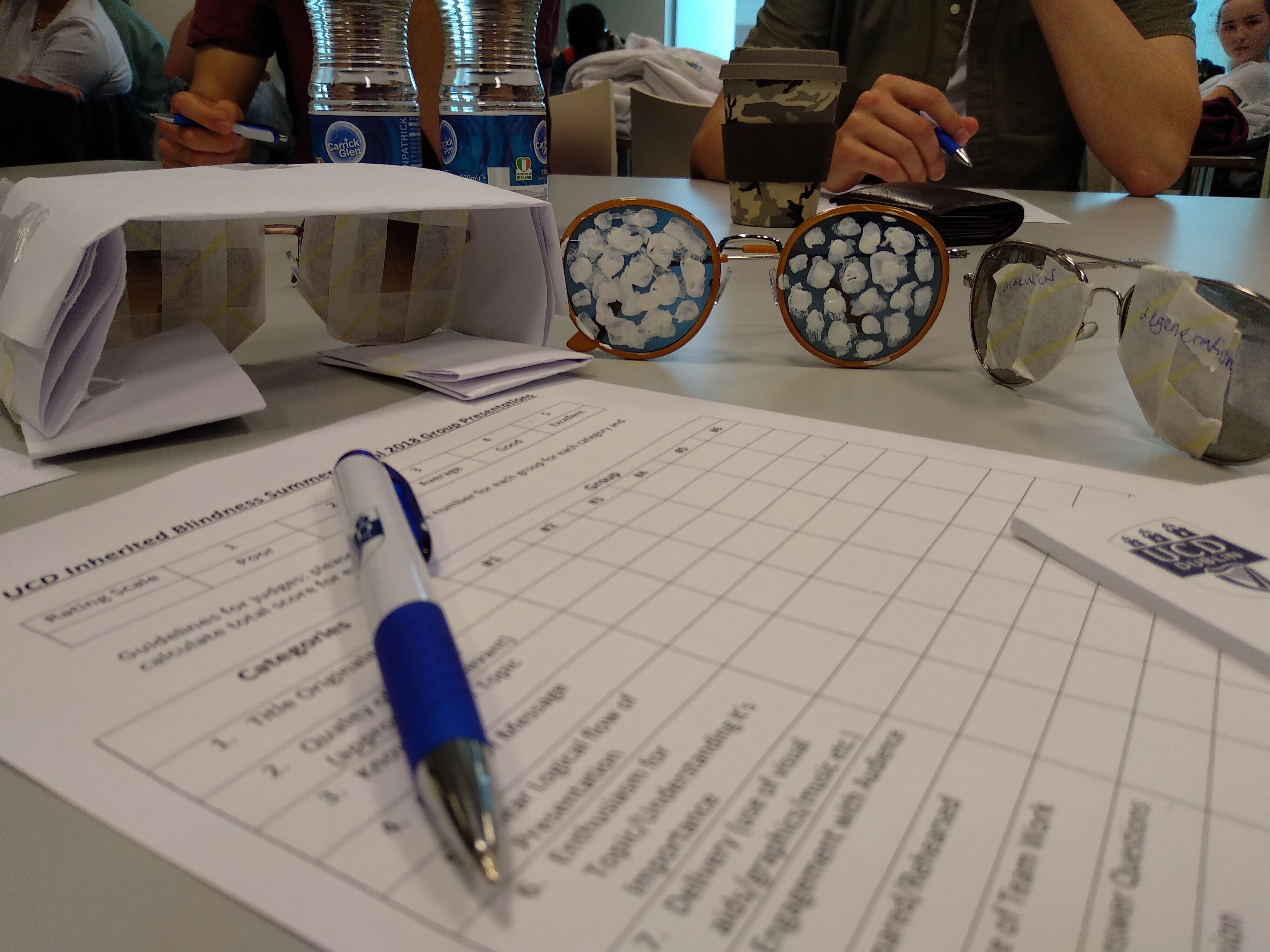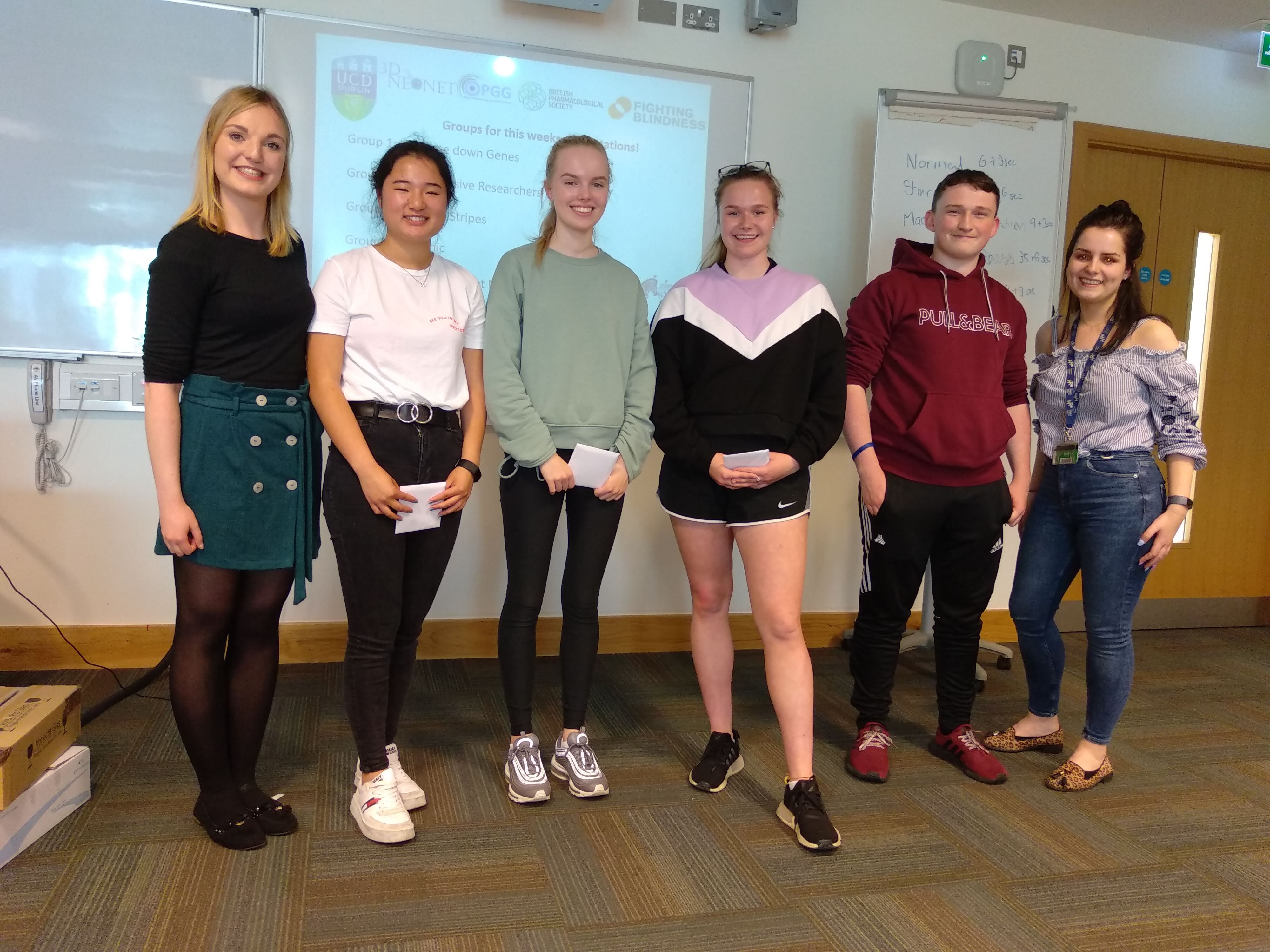As the British Pharmacological Society’s Ambassador for Ireland, one of my key advocacy and outreach activities is hosting the annual University College Dublin (UCD) Inherited Blindness Summer School. The summer school is targeted at pre-university students who are in their third year or second-to-last year of secondary education. Most of this student cohort have never heard of pharmacology as a scientific discipline. Indeed, I started third-year education myself with no knowledge of the subject and was lucky to find my way into the pharmacology stream. Most of these students have never spent time in a university environment, hearing lectures on theoretical aspects of pharmacology. Most have never experienced hands-on, lab-based experimentation with pharmacological tools. The annual BPS-funded UCD Inherited Blindness Summer School provides an opportunity to experience all these facets of the discipline.
The goals of the summer school are to promote pharmacology, raise awareness of inherited vision loss and endorse scientific careers for secondary-school students. The event, organised by UCD PhD students Rebecca Ward and Ailís Moran, took place over 4 days in June 2019, with involvement from clinicians, researchers, patients, and supporting charities. Senior cycle students throughout Ireland were invited via their secondary schools to register and take part. A total of 22 students from 5 different counties (Dublin, Kildare, Offaly, Kilkenny and Louth) across Ireland completed the course. The female-to-male ratio was 59:41.

Practical laboratory experience
The course introduced students to pharmacological research in a university setting. Students got the chance to participate in hands-on, independent laboratory experience that encouraged scientific enquiry and critical thinking. The practical-based method of teaching science subjects was a unique experience, one not readily available at secondary level in Ireland. In afternoon laboratory sessions, students conducted experiments based on topics from the morning lectures. A logical workflow was integrated into each laboratory session and stimulated students to apply their knowledge in a practical situation. Practical classes involved identifying visually impaired zebrafish using behavioural assays and polymerase-chain-reaction genotyping. Drug action in vivo was realised by using a drug to restore vision in a blind zebrafish model. The students used a behavioural assay to identify zebrafish larvae with impaired vision due to a genetic mutation. They treated the larvae with tubastatin A, a histone deacetylase 6 inhibitor, from 3–5 days post-fertilisation and showed improved vision using the optokinetic response assay. The assays chosen required little training and enabled the students to independently perform real experiments, generate results, and draw conclusions.
.jpg.aspx)
Paralympian Orla Comerford
Raising awareness and dismantling stereotypes surrounding rare, inherited forms of vision loss was a key aim of this event. Thus, students learned about inherited forms of vision loss from a patients’ perspective. A highlight for the students was participation from Irish Paralympian and European Bronze medal winner Orla Comerford. Orla really connected with the students as she talked about her experience as an elite sprinter, transitioning to tertiary education and her personal perspective on a form of impaired central vision called Stargardt disease. Orla described the reality of visual impairment for an energetic, driven young person and the importance of pharmacological research for a disease that currently has no cure. Listening to Orla describe her unwavering determination to overcome all barriers and to achieve her goals was inspiring.
Learning how to communicate about science
Sharing scientific research with the public is essential. To this end, the summer school required the students to generate a group media project that effectively communicated the scientific knowledge learned throughout the week to a lay audience. The group project required students to work as a team and develop their presentation skills. Presentations included theatrical performances, interactive quizzes and rap medleys. The course also provided a platform for students to appreciate university life. The students explored the UCD campus with current undergraduate students and discussed the transition from secondary to tertiary education.
Great feedback from the students
The impact of the summer school was measured through an anonymous questionnaire given to the students at the end of the week. The survey gathered information on each student’s experience at the summer school. The feedback was highly positive. For example, ‘I loved hearing from all the different lecturers. There was a good balance of science versus general advice about third level.’ The laboratory sessions were particularly successful, which emphasises the need for a combination of practical and theory-based learning. The blend of teaching methods in a problem-based learning approach, instilled critical thinking and team work amongst the students.
The lab work was particularly enjoyable because I got a lot of hands-on experience and could ask questions easily to the demonstrators.
The course allowed students to experience research first-hand in an academic setting. One of the most rewarding comments was: ‘This week has given me the confidence that I can go to University and I can study for a science degree.’ The core workshop is an easily reproducible educational tool for introducing pharmacology and therapeutics through a mixture of seminars and relevant practical experiments.

Support from the British Pharmacological Society
The British Pharmacological Society has been a remarkable resource for supporting pharmacology trainees at UCD, as it has for many other academic institutions. It has provided opportunities for UCD students to present at conferences and travel to international labs for bespoke training and recognised their achievements with awards and prizes. The Society has also provided invaluable support to pharmacology teaching in UCD by providing educational resources to staff and by re-defining a core pharmacology curriculum. As someone who has benefitted enormously from pharmacology, I’m eager to promote this fantastic discipline.
Acknowledgments
The summer school was made possible through the support of the British Pharmacological Society, UCD College of Science, 3DNEONET and Fighting Blindness. We thank UCD staff and researchers Stephen Carter, Darrell Andrews, Husvinee Sundaramurthi, Alison Reynolds, Yolanda Alvarez, Greg Tsolkas, Orla Donoghue, Joe Carthy, Shane Comer, Kayleigh Slater, Justine O’ Brien and Matthew Murphy, who volunteered their time to participate in seminars and practicals. Special thanks to consultant ophthalmologist David Keegan and Fighting Blindness Ambassador Orla Comerford, who provided the students with a clinician’s and a patient’s view of inherited vision loss.
Comments
If you are a British Pharmacological Society member, please
sign in to post comments.